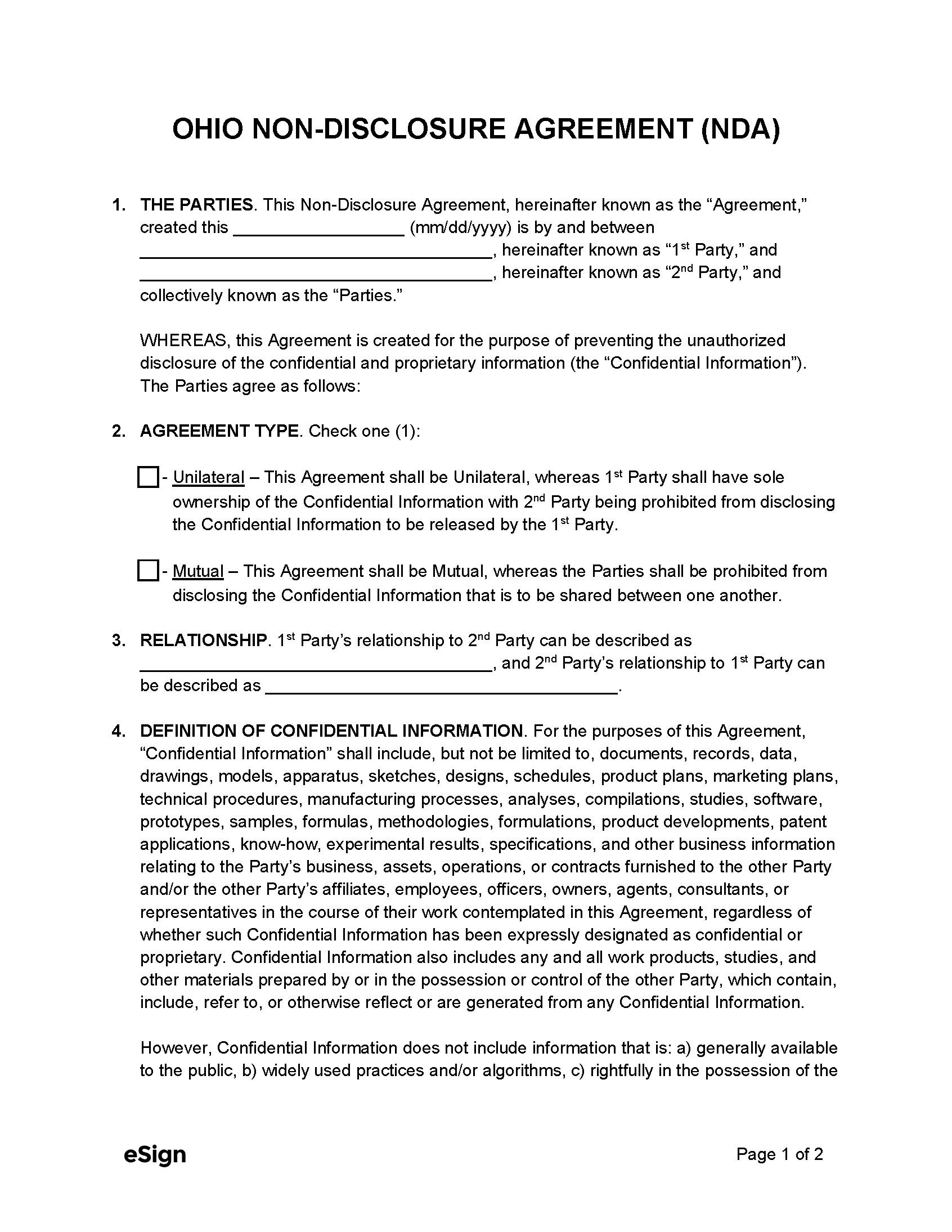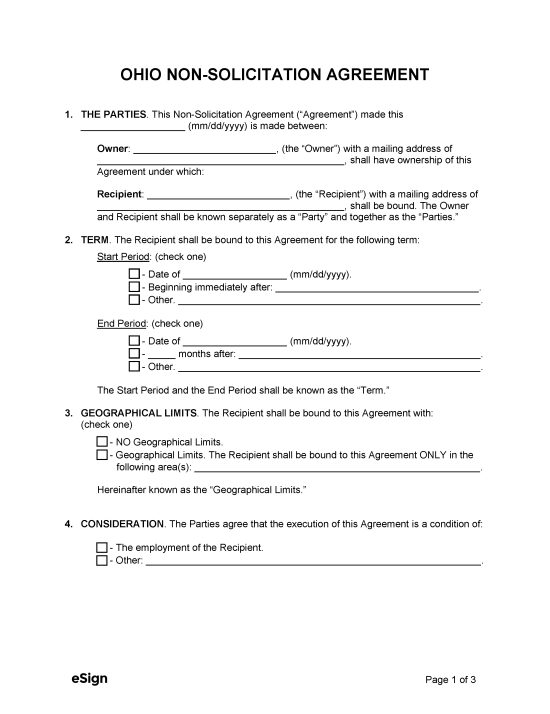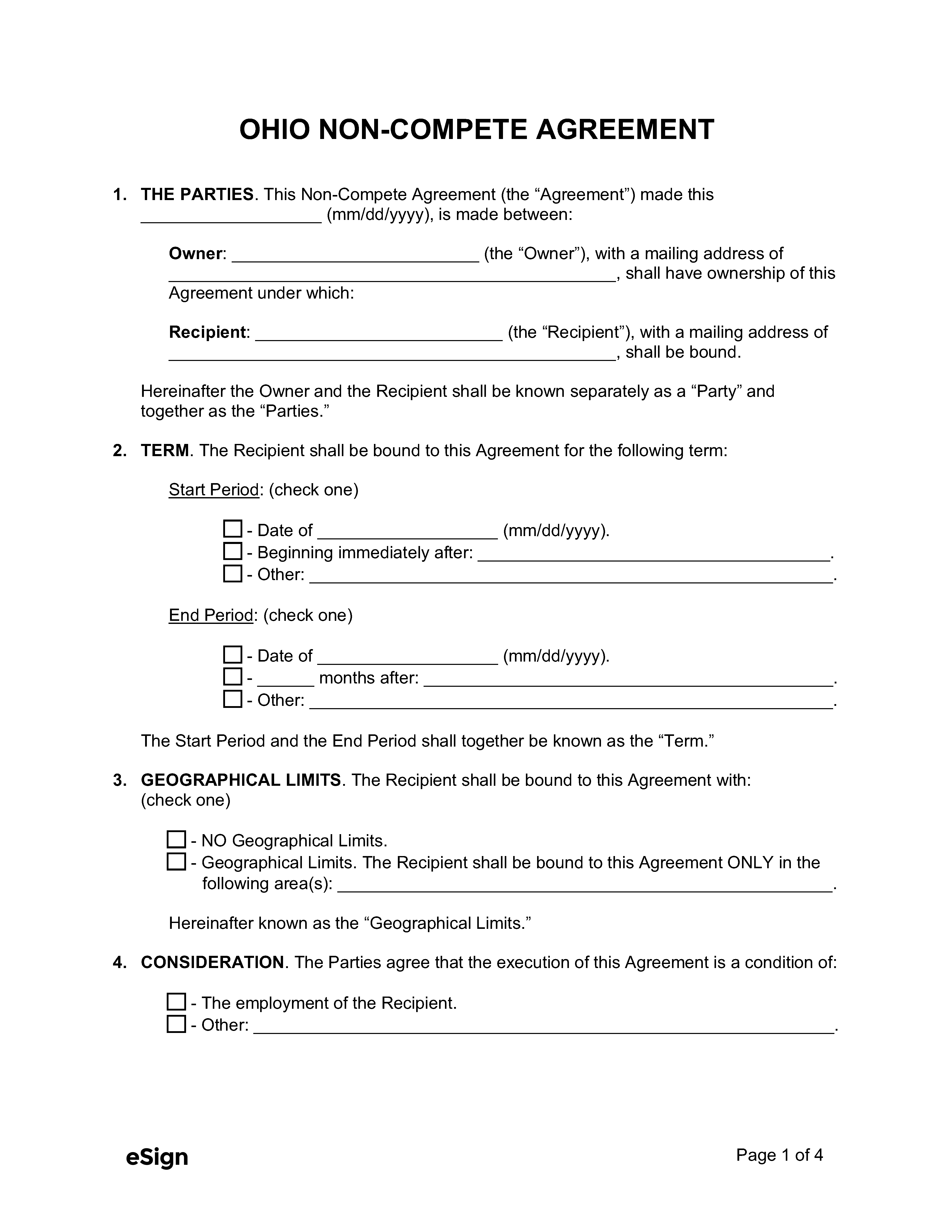Contents |
Enforceability in Ohio
Though there are no state-specific laws that govern the use of a non-compete, Ohio courts have found that non-competes are enforceable if:[1]
1. The restraint is no greater than that which is required to protect the employer;
2. It does not impose an undue hardship on the employee; and
3. It is not injurious to the public.
When it IS Enforceable
- Protectable interests. Ohio courts will enforce agreements that protect what they determine to be reasonable and legitimate business interests.[1]
- Reasonable scope. The court will use several determining factors to decide if the agreement is valid; they may include:
- If the agreement limits time and space, and to what extent;
- If the employee is the sole contact with the customer;
- Whether the employee had access to confidential, proprietary information;
- Whether the competition the restrictions aim to eliminate is unfair or ordinary;
- If the agreement impedes the employee’s experience or “inherent skill;”
- If the benefit to the employer is not proportional to the damage imposed on the employee;
- If the agreement restricts the employee’s only means to support themselves;
- Where the skills the employer wishes to restrict the employee from using were learned during their employment period; and
- Whether the prohibited activity is part of the employee’s ordinary business routine required to carry out their employment.[2]
When it’s NOT Enforceable
- Practicing law. Attorneys are not permitted to enter into any agreement that will restrict their right to practice in the event of the termination of their employment.[3]
Maximum Time Period
Ohio state statutes do not mention any limitations on the duration of non-compete agreements; instead, courts will look to the facts and circumstances of the case to determine the reasonableness of the contract’s term. In some cases, courts have been shown to enforce agreements of up to three (3) years[4]; however, the longer the duration of the contract, the more difficult it will be to enforce.
Sometimes shorter restrictive covenants will be rejected by the court as well. In the case of Murray v. Accounting Center &Tax Services, the Ohio Supreme Court determined that a two (2) year restriction created undue hardship on the former employee, and was therefore unreasonable.[5]
Geographical Area
Whether an Ohio court will consider the geographical restrictions of a non-compete enforceable will vary depending on a number of factors, including the type of industry and the profession or specific skills of the employee.
In the case of National Interstate Insurance Co. v Perro, a six (6) state restriction was upheld because the employee had customer information within those states.[6]
As with the time period, the broader the geographical limits, the more difficult they will be to enforce. Ohio courts also prefer to interpret distance as a straight line instead of driving distance.[7]
Consideration
When an employee or other party signs a non-compete, they must receive consideration (i.e., compensation) in return. Ohio law considers hiring itself as sufficient consideration.[8] Additionally, the continuation of at-will employment[9] and changing of other employment terms will also be regarded as sufficient consideration.[10]
Sources
- Raimonde v. Van Vlerah, 42 Ohio St. 2d 21, 325 N.E.2d 544 (Ohio 1975)
- Extine v. W. Midwest, Inc., 176 Ohio St. 403, 406, 200 N.E.2d 297, 299 (Ohio 1964)
- Ohio R. Prof’l. Cond. 5.6
- Procter & Gamble Co. v. Stoneham, 140 Ohio App. 3d 260, 271, 747 N.E.2d 268, 276-77 (2000)
- Murray v. Accounting Center, 178 Ohio App. 3d 432, 438, 2008 Ohio 5289, 898 N.E.2d 89, 93-94 (Ohio Ct. App. 2008)
- National Interstate Ins. Co. v. Perro, 934 F. Supp. 883, 891 (N.D. Ohio 1996)
- Ginn v. Stonecreek Dental Care, 2015-Ohio-445
- Premix, Inc. v. Zappitelli, 561 F. Supp. 269, 274-75 (N.D. Ohio 1983)
- Lake Land Emp. Grp. of Akron, LLC v. Columber, 2004-Ohio-786, 101 Ohio St. 3d 242, 248, 804 N.E.2d 27, 31-32
- Rogers v. Runfola & Assocs., Inc., 57 Ohio St. 3d 5, 6-8, 565 N.E.2d 540, 542-43 (1991)
- Professional Investigations v. Kingsland, 69 Ohio App. 3d 753, 760, 591 N.E.2d 1265, 1269-70 (Ohio Ct. App. 1990)
Related Forms (2)

Download: PDF, Word (.docx), OpenDocument

Download: PDF, Word (.docx), OpenDocument
